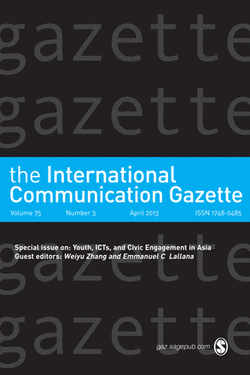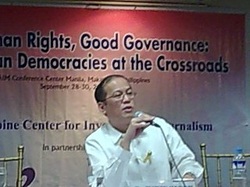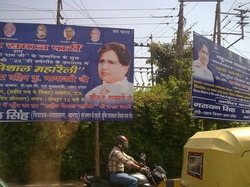 Our special issue on "Youth, ICTs and Civic Engagement in Asia" is published in International Communication Gazette!!! Thanks to my co-editor and project head Emmanuel Lallana, and dear collaborators Clarissa David, Mohammad Sahid Ullah, P. Vigneswara Ilavarasan, and Joanne Lim! Speical thanks to the editor, manager, and proofreader of this journal too. They are all so professional that this issue gets published smoothly and timely. Highly recommend my colleagues to submit to this journal! You can download the entire issue HERE! A table of content is found here.
0 Comments
 Dhaka, Bangladesh Dhaka, Bangladesh The “Youth, ICTs, and Political Engagement in Asia” project spanned over three years from 2009 to 2012 and officially closed on November 15, 2012. The five-country (Singapore, Malaysia, Philippines, India, Bangladesh) comparative study was funded by International Development Research Center, Canada through ideacorp, the Philippines, after a competitive review process. A grant of SGD 170,000 was utilized to conduct 143 in-depth interviews and 41 focus group discussions. About 35 researchers were recruited, trained, and organized to contribute to this project. The project has been presented as a panel at the 19th Asian Media Information and Communication (AMIC) conference and the 2012 conference of International Association of Media and Communication Research (IAMCR).  Colombo, Sri Lanka Colombo, Sri Lanka We have completed an administrative report on this three-year journey we have taken part in. The process has been anything but comfortable, expected, or business as usual. We took great pain in detailedly documenting this process and hope that our experience would add into the practical wisdom about working in this region. For example, one sad loss is that we were unable to sustain a research partnership in Sri Lanka, a country that I set my own feet in and has inspired me tremendously. Although this administrative report would not be counted in any research institutes as academic publications, it nevertheless provides a rare account of doing research in developing countries and its various challenges. If you are wondering how tough a researcher's job could be, please click here.  Noynoy Aquino Noynoy Aquino When the project started, Noynoy was still the son of Corazon and had little interest in contesting for the president. He was still free enough to participate in the anniversory event held by one of our Philippine partners. One blogger journalist asked a question about his hairstyle and he was not annoyed at all. Now the then fresh face in the Philippines politics became the 15th President. It is hard not to think that the young activists we have interviewed would become someone important enough to reset the trend and open up a new era of Asian history. One of our responsibilities is to articulate such potential based on what young activists themselves have told us and envisioned their future. Our Filipino collaborator, Dr. Clarissa David and I co-authored a short piece on the significant trends of digital activism among Asian youth and presented the findings at the CeDem Asia conference held in Singapore last year. Our presentation slides can be viewed here. The short reflection is now available online here.  Delhi, India Delhi, India Last but not the least, our academic outputs are forthcoming as a special issue in International Communication Gazette. Each of the five countries produced a focused paper on the most salient aspects of youth activism through ICTs found in their country. You will expect to see them out in March/April this year. But we have done much more than the five papers. Each of the five countries also compiled a background report of the very basic information of the country, including youth population, ICT penetration rates, participation policies, media policies, youth policies, development of new media, and political culture and climate. These reports can be found here. I was invited to deliver a keynote lecture for the 22nd International Youth Forum in Seoul, organized by The Ministry of Gender Equality and Family and The National Council of Youth Organizations in Korea. It was a great opportunity for me to ponder on what I have done in the last three years when trying to run a six-country comparative research project. I really did not want to lecture my audiences as they probably have heard much in school. The four words in the title are among the most meaningful to me in the recent years. It is a speech that targets myself as well.
The two sections on Change and Youth are presenting the factual observations I had during my research trips. The last two on Failure and Excellence tried to convey a message: Excellence does not require success and heading to a highly possible failure is a brave choice that already indicates excellence. Allow me to insert an excerpt here: "Alright. It seems that failure is a given fact and success is only the beautiful scenery we enjoy on our way to greater failure. So what are we trying to achieve here? What are we challenging ourselves to get? What are we risking our comfort for? If it is neither success nor failure, what is it? It is excellence. Excellence, by definition, means the fact or state of excelling. To excel is to surpass the ordinary standards. As long as we are trying to surpass what have been achieved by either others or ourselves, we are excelling or we are headed towards excellence. A sportsman excels when she breaks her own record. A student excels when she learns new knowledge. A politician excels when she speaks for the neglected. Excellence is different from success because it is more about your own pursuit than conforming to how others judge you. It is you who decides what to excel, how to excel, and when to stop. As long as a person excels in her own regard, we should show our full respect." I truly thank my colleague Catherine Candano for reviewing the manuscript and giving me feedback. A full manuscript can be found here. |
Weiyu Zhang
I am an Associate Professor at Department of Communication and New Media, National University of Singapore. Categories
All
Archives
January 2019
|
 RSS Feed
RSS Feed
